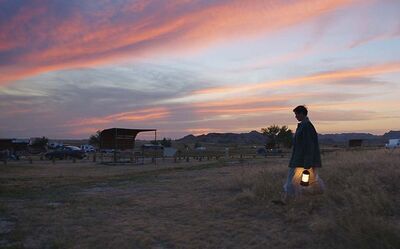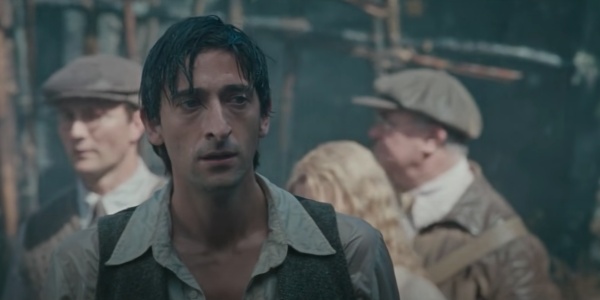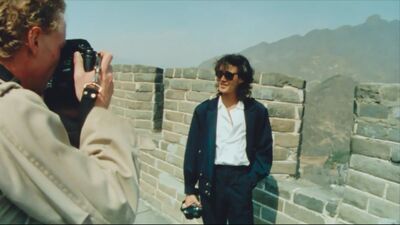ANOTHER EARTH: A Multidimensional Success
There is magic in the art of indie film. A journey of exploration whose defined boxes of storytelling give way, warping and bending, allowing for emotional explorations and narrative oddities to fill the screen. Outside the blockbuster realm, it’s where some of the best geniuses take root. And writer-director Mike Cahill’s Another Earth is the perfect example of why we need more.
Celebrating its tenth anniversary this year, Another Earth, co-written by Brit Marling, was a film I was initially drawn to by its location more than its storyline. Filmed in my home state of Connecticut, down the road from where I worked, the idea of seeing my local community on film was an experience I could not pass up. I had hopes of enjoying Another Earth beyond its locale, especially since there had been a lot of buzz following its Sundance release, but I wasn’t prepared to fall in love with this film. With a score and an ending I’ve been unable to shake since 2011, the film marks the beginning of a loyal following for one of the most talented writers/actors in Hollywood.
A Solid Beginning
Another Earth does not hold back, utilizing its pulsating opening score and montage of party footage to heighten the narration of the film’s protagonist. She talks of falling in love with Jupiter and space, as high-speed video details the hypnotizing nature of Jupiter’s gases as they encircle the planet in motion. As you are mesmerized by the planet, so too are you by the carefree nature of the young teenager, standing at the precipice of her future: acceptance to MIT. There is promise and euphoria within the montage, coupled with a foreboding feeling as it comes to a halt with the clearly inebriated teen getting into her car.
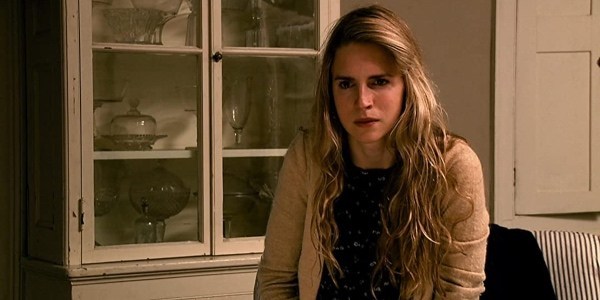
As she’s driving, the radio broadcaster announces the breaking news that a new planet similar to our own has been discovered and that if you look up into the night sky, you just might be able to see it. While the young teen looks up, taking in the wonder and excitement of the new discovery, the camera leaves her, coming to rest on a young family waiting at a stoplight. There is an intriguing point of view presented to audiences, the camera taking in each individual within the car through a series of close-ups, eventually pulling away in order to look at the car from above – allowing the action to come onto the screen. As the young teen crashes into the family’s Volvo, there is no immediate breakaway, no cuts to the individuals in either car. It feels as though in the time Earth was looking up at the new planet, they too were looking down at us.
What Another Earth does so successfully here is not only to establish a basis for its future theories about the emergence and existence of the new planet but also bring into focus a philosophical concept of self that will follow Rhoda (Brit Marling) – and the rest of the planet – throughout the entirety of the film. It is here that the carefree and ecocentric nature of the young teenager is thrown into perspective, her world crashing into another’s, permanently instilling an awareness of others and the world around her. Paralleled, on the same evening, of those on Earth experiencing the same feeling – though not as dramatically – of breaking an ecocentric viewpoint on the universe. They are no longer alone.
As audiences recover from the shock, Rhoda awakens from her injuries sustained in the crash, the realization of what has happened slowly taking shape as she exits her vehicle to examine the damage. The accident is discreetly graphic, with limited shots of the injured family from Rhoda’s perspective. However, saving the shocking reveal of how deeply devastating the accident is, the camera once again pulls away and looks down.
Depth of Character
As you feel the horrific nature of the accident, it creates a deeply altering moment for the main character. A moment one can never truly come back from. A moment that controls and influences all her decisions going forward. As you feel Rhoda almost holding her breath, the film jumps forward four years. There is little information given as to what has transpired during this time, the filmmaker certain of the audience’s ability to infer. Now in the present day, the mirrored planet is even closer, constantly on the horizon, and Rhoda finds herself being released from prison.
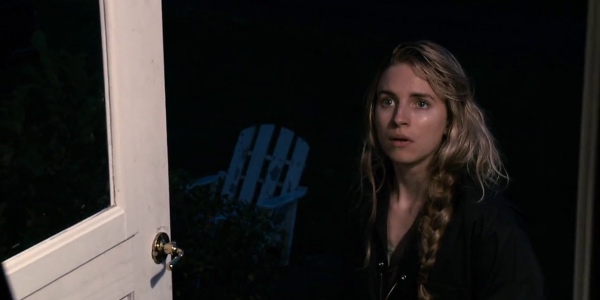
Quickly, the film works to establish her current relationships with those around her. As she leaves prison, you see the disconnected relationships that night has left in its wake, the film conscious that the effect of the accident ripples beyond just Rhoda and the victims. Her younger brother is ecstatic by her return, yet disjointed in his interaction with her. Rhoda’s parents are quiet and reserved around her. Even the ripples and disconnection with the future is established as she enters her room, the mise en scène devastatingly showing the potential she once had – the future she lost that night.
The film gives Rhoda the time to work through reacquainting her surroundings and readjusting to life outside of prison. We as viewers are unaware of what life was like within, but we can infer the loneliness and guilt Rhoda has carried with her. As she reaches out to find the forgiveness to move forward and to obtain even a sliver of peace for herself and those she has affected, her life begins to take an unexpected turn. Opportunities present themselves in the most unlikely of people and the most unlikely of places.
It’s all in the details
Another Earth is jam-packed with gorgeous wide shots taking in the West Haven shoreline and the encroaching duplicate earth. Rolling clouds and clear skies each have a moment to shine as the main character walks past. As she is having a moment of reflection in the isolation of her walk, viewers are given the same within the moment and the scenery.
The score is equally breathtaking. It is both intense and emotionality whimsical within its flowing cello accompaniment. No matter the sound, however, the score throughout maintains a steady beat, speaking to the character and surrounding her in the push forward. There is no judgment, but rather a whispering of understanding and a hope for the future.

Another Earth also boasts a strong personification of loneliness and guilt in John and Rhoda. While the origins may be from a different perspective, it is shared and quietly understood. There is an unspoken language created between the two, one rarely heard yet one that can be understood by all who watch the film. What makes this language so transcendent are the performances by Brit Marling and William Mapother. There is an awkward chemistry between them that works here, both for their interactions and the story as a whole. They allow themselves time to breathe within their characters, their moments of reflections as actors apparent in the breadth of life on screen. They are unafraid to embrace the ugly, allowing their characters to live the journey they have been scripted to its fullest extent.
Conclusion: Another Earth
When all is said and done, audiences will find themselves questioning the ideas of a mirrored planet, the ideas of doppelgängers, and the “what if” questions the film forces its characters to consider. What if the accident had never happened – how would each of their lives be different?
Another Earth is multifaceted and deeply layered, its nuanced performances and examination of alternate possibilities providing viewers with a unique viewing experience. As this film celebrates its 10th anniversary this year, the relevancy and poignancy of Another Earth sure to resonate even more deeply than before.
Have you seen Another Earth? What did you think? Let us know in the comments below.
Watch Another Earth
Does content like this matter to you?
Become a Member and support film journalism. Unlock access to all of Film Inquiry`s great articles. Join a community of like-minded readers who are passionate about cinema – get access to our private members Network, give back to independent filmmakers, and more.
Join now!
